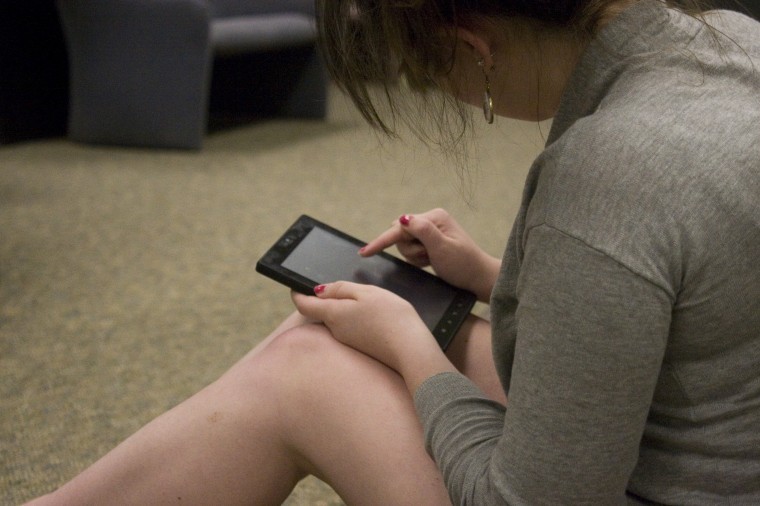Tablet devices may have advantages over traditional textbooks
March 21, 2012
When Jeffrey Hecht watches his 14-year-old daughter head off to class with a 30-lb. backpack, he starts to wonder.
He thinks about if all students had to carry was a 1.6 lb. iPad like the one he has. Students could access the internet, their notes, textbooks and applications to help them study all on one device, he believes.
Hecht is the associate dean for operations in the College of Education and oversees technology use at NIU. Eventually, Hecht said most students will have iPads or other tablet devices due to their portability and accessibility, but also because they have more interactive features than a traditional textbook.
“They get people to interact with the material, rather than just reading it,” he said.
A study conducted by the Pearson Foundation between Jan. 9 and Jan. 27 this year, found that tablet ownership among college students and college-bound high school seniors has more than tripled from a year ago. According to the study, 25 percent of college students now own a standard tablet.
Of the 1,206 college students and 204 college-bound high school seniors across the U.S. who participated in the study, many noted that tablets were just as valuable for educational purposes as for entertainment. The majority said they prefer to read digital books rather than print. In the study, students agreed that tablets will transform the way college students learn in the future.
BenchPrep, an online interactive textbook and test prep platform, has geared its application toward helping this new generation of students who would rather play games or take quizzes on portable devices like iPads, than study from a textbook.
Ashish Rangnekar, CEO and co-founder of BenchPrep, said a textbook is “bulky” and has “no feedback mechanism.” But on the other hand, BenchPrep allows students to interact with the material through quizzes, flashcards, vocabulary games and social features as they receive feedback in real-time, Rangnekar said. Students can access the application on their iPads, iPhones, Android devices and the Web.
“Students can buy a course on an iPad, start the test on their computer and finish the test on their Android phone,” Rangnekar said. “Everything a student does remains in perfect sync and they don’t have to remember where they left off the last time.”
Rangnekar said in the last six months, more than 400,000 people have used BenchPrep and each user spends an average of nine hours a month on the application.
Interactive applications like BenchPrep can be good resources for students, but one problem Hecht said is that high-speed internet connections aren’t available everywhere on NIU’s campus.
Despite this, Hecht still thinks that having learning applications, textbooks, games, notes and more all on a portable tablet would be “pretty cool.” He anticipates that more students will start using tablet devices.
“We think more folks are going to be using iPads and it will dominate the way students learn,” he said.



